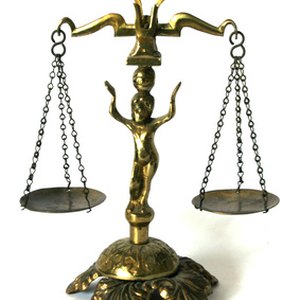
A power of attorney is a legal document that gives one person the right to make decisions for someone else. When a person grants power of attorney, the recipient is allowed to do whatever the principal can legally do as long as the document grants that right. Powers of attorney must comply with the requirements made by your state, so talk to a lawyer if you need legal advice about their use.
Terminology
A power of attorney is an agreement between a principal and another person or organization. A person granted power of attorney is not generally called a power of attorney, but rather the attorney-in-fact or the agent. Also, attorneys-in-fact do not have to be actual lawyers, and being granted power of attorney does not give you the right to practice law. Thus, a power of attorney cannot take any action because the power of attorney is merely a document, and only the agent can take actions.
Powers
When you grant power of attorney, you have the right to let your agent do whatever you want him to do and whatever the laws allow you to do. For example, you can let your agent pay your bills for you, file your taxes, take out loans or trade securities. The power your agent has is only limited by the terms of your power of attorney. You can limit this power as much or as little as you wish.
Actions
When an attorney-in-fact takes an action on your behalf, he typically enters into an agreement or takes an action with a third party. For example, if you authorize your attorney-in-fact to take out a home loan, he can go to a bank, negotiate the terms of the loan and sign the loan documents on your behalf. Once completed, you become responsible for the loan, not the agent.
Requirements
When you grant power of attorney, you must do so according to the laws of your state. In general, a power of attorney must be granted in writing. The principal has to sign the document and may have to get it witnessed depending on your state. The document must also detail the powers granted and name the agent, though the agent doesn't necessarily have to sign. Also, some states require that a power of attorney specifically list certain kinds of powers, known as hot powers, or the agent will not be able to take these actions. These include such powers as making a gift with the principal's assets, changing a beneficiary or delegating the agent's powers to someone else.
References
Writer Bio
Roger Thorne is an attorney who began freelance writing in 2003. He has written for publications ranging from "MotorHome" magazine to "Cruising World." Thorne specializes in writing for law firms, Web sites, and professionals. He has a Juris Doctor from the University of Kansas.

